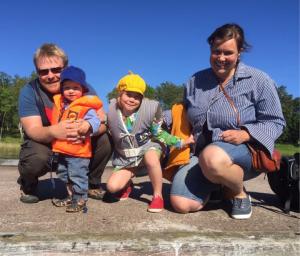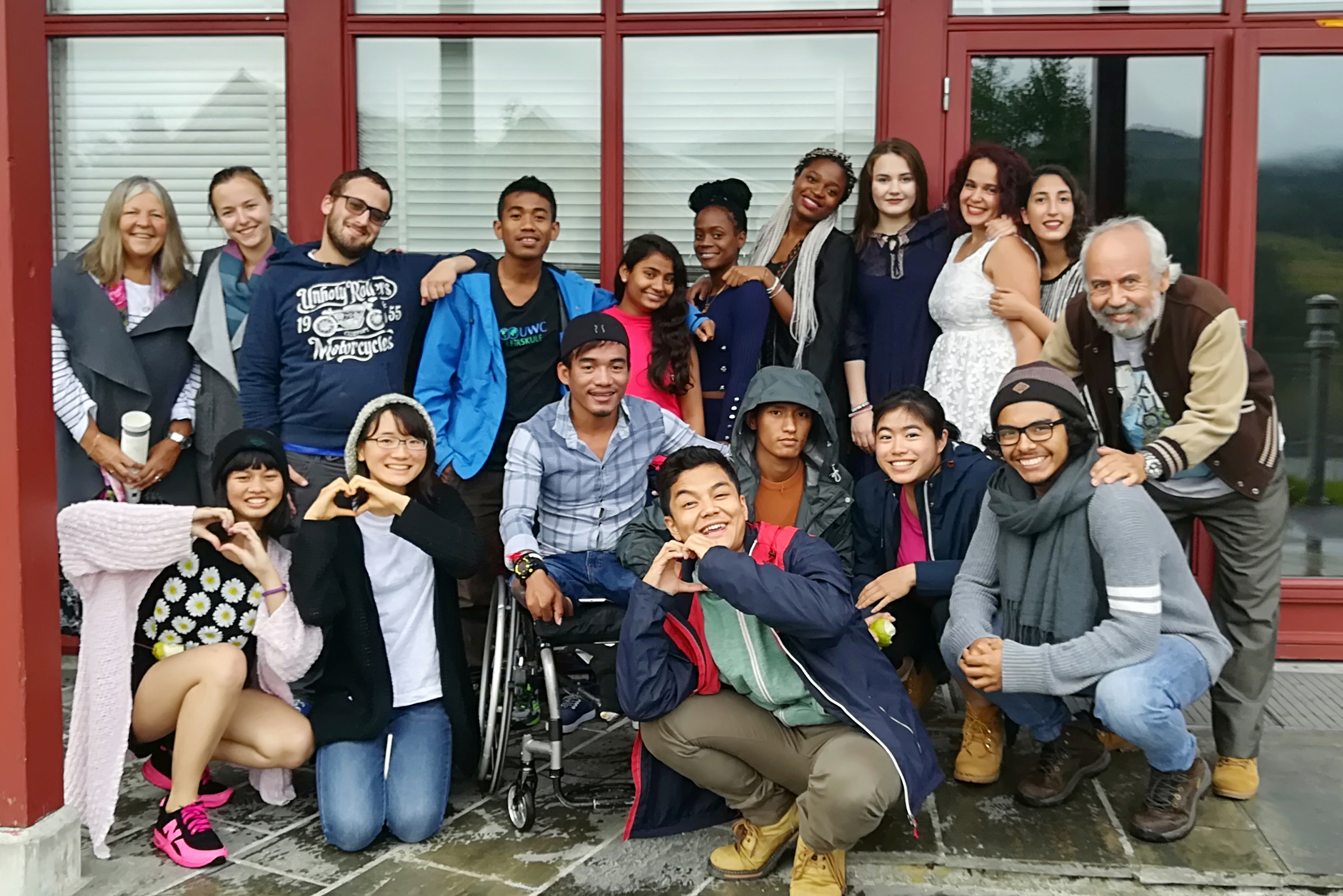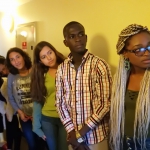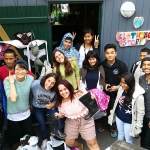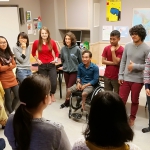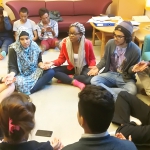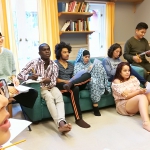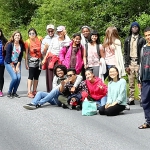Wille Valve (’97 – ’99)
This summer, the RCN delegation had the pleasure of visiting the Åland Islands as part of our Nordic Cooperation tour. Åland is geopolitically unique within the Nordic region: the islands are part of the Republic of Finland, but are the only monolingually Swedish-speaking region in the country, have their own government, fly their own blue-gold-and-red flag, and are an entirely demilitarized zone. During our visit, we had the chance to reconnect with former RCN alumnus Wille Valve (’97 – ’99) in the capital of Mariehamn. Wille currently works within the Åland Government as Minister of Social Affairs and Health, and credits his RCN experience for having spurred some of his initial interest in politics.
“Looking back, I don’t know if I would have ever become a politician, had it not been for my days at RCN. Perhaps at times, it is only years later – in hindsight – that we can recognize and appreciate the transformative impact of this place.”
Wille takes a moment to reflect back on some memories and key lessons learned during his days at RCN: “Looking back, perhaps I can distill some top three key lessons that I took away from RCN. First, critical thinking, always assessing the credibility of sources. This is actually more important than ever in this era of fake news and semi-fake news. It’s a sad thing, for instance, that very few students realize how important TOK is, only years after graduation. Another reflection is that even cross-cultural understanding has its borders. You can’t explain the values of President Trump by saying that he’s from another culture. For many Americans, he is an oddity even in American culture. And finally, the realization that it is actually we who shape the world.”
Wille’s post-RCN academic and professional career has been varied and dynamic. During our talk, he recounts three of his most memorable work experiences which, alongside his studies in International Law at Åbo Akademi in Turku, Finland, culminated in his current political post. After graduating from RCN, Wille completed a six-month internship at the Nordic Council of Ministers in St. Petersburg (thereafter labelled as a ‘foreign agent’ and thus closed). Wille describes the internship as an excellent place to get to know Russian culture, whilst still maintaining a foot in the Nordic zone. A couple of years later, he worked during six months as the Head of the Åland Mediation Office, reconciling crimes and helping people to find solutions for their various issues and conflicts. Lastly, Wille worked during two years as an assistant for a Member of European Parliament in Belgium. He explains, “Here, I got a sense of being proud of being a politician and a feeling that the job politicians do is really important. I think these three experiences – St. Petersburg, being head of the Mediation office and working at the European Parliament were important experiences. Without them (and RCN), I would probably be a different kind of person and politician.”
Today, Wille works as Minister of Health and Social Affairs as part of Åland’s highest political authority, Landskapsregeringen. During the last elections, Wille switched from being Minister for Administrative Affairs (n.b! The same title as in “Yes Mr. Minister”, he jokes) to his current post, receiving +25% more votes than in the previous elections. He notes that he feels humbled by the trust and confidence that the Ålanders have instilled in him.
“In this job, it’s really important to have one’s priorities 100% clear all the time (for oneself). For example, last year we passed a budget whereby we are shrinking the health sector with 2 million euros per year, which is possible but requires a lot of teamwork, will, patience and clear priorities.”
Alongside his political career, Wille’s hobbies are choir singing and running. He describes singing as something 100% disconnected from what he normally does, and running as a good way to clear his thoughts. Wille lives in the capital of Mariehamn with his wife, Linda, and their two young children, a six-year-old daughter and a two-year-old son. The family has recently invested in a boat, in order to spend some time exploring some of the 6,500 islands around the archipelago.
As an alumnus, Wille expresses great enthusiasm for remaining connected to the RCN family and broader UWC values and movement. Wille has formerly served as an RCN board member and former head of the Åland delegation to the Nordic Council. He emphasizes the core importance of having a Nordic UWC, and aspires to seeing that all the Nordic governments and the self-governed territories feel a genuine ownership in the project. Wille remains actively engaged with the Åland UWC National Committee, and extends a warm welcome to any RCN-ers out there who might happen to come to Åland: “Do not hesitate to contact me! A vehement guided tour of both parliament and government building is guaranteed”, he smiles.
“The UWC mission is more important than ever. One of the strengths of the UWC movement is to, at times, challenge itself and its own values. May that spirit prevail.”
Written by Lisa Jokivirta.
For profiles and news of other students, alumni and staff, click here.


